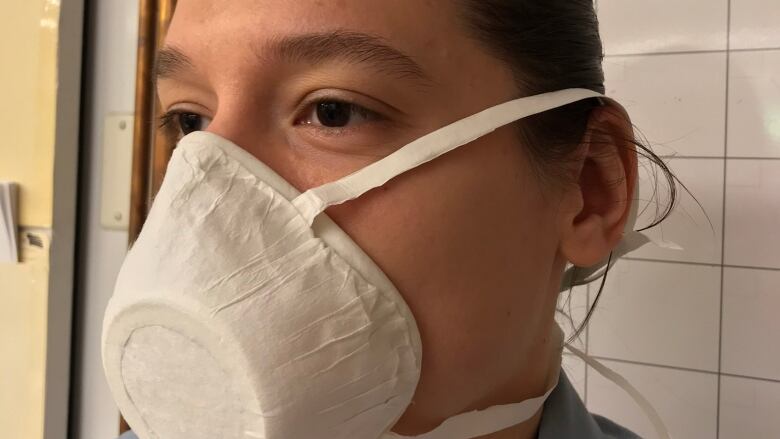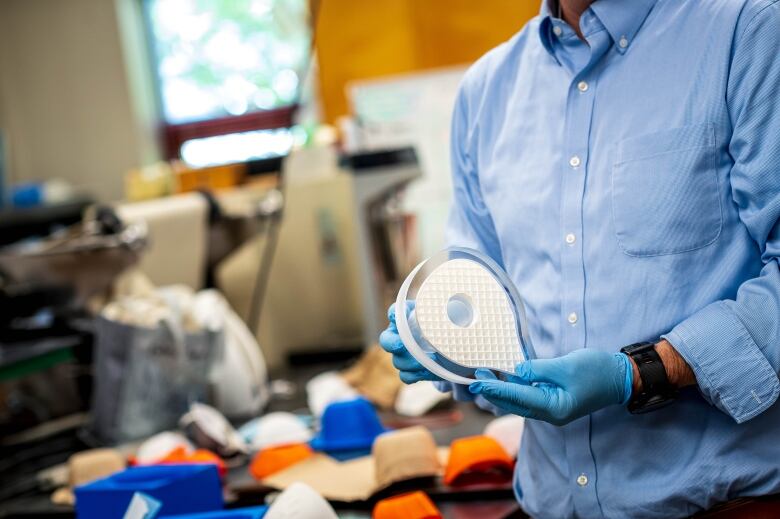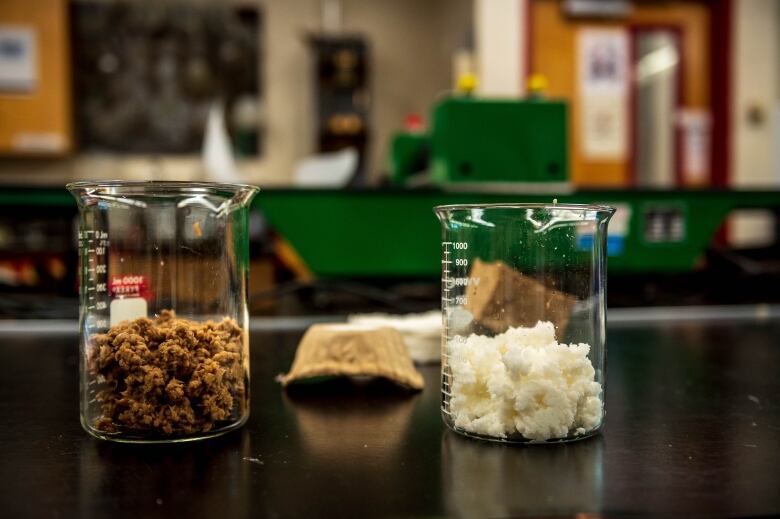UBC researchers develop biodegradable medical masks made from wood fibre
Mask made in Canada could solve potential supply issues, researcher suggests

Researchers from theUniversity of British Columbiasay they have developed a biodegradablemedical maskthat could offer a solution to supply chain shortages amid the COVID-19 pandemic.
The university'sBioproducts Institutehas put together a prototype mask made fromB.C. wood fibres including pine, spruce, cedarand even recycled paper.
It's called the Can-Mask. Two versions of it are currently being tested to determine if they meet health industry standards one using a commercial N95 filter, the other using a filter made from wood fibre.
"It's a very good mask [using material] that's abundant, available, sustainableand biodegradable,"saidOrlando Rojas,scientific director of the university'sBioproducts Institute and a professor in chemical and biological engineering, chemistry and wood science.
"It's a very important forest-based material, and it gives us a little bit moreindependence from a geographical point of view," he added.

Made in B.C.
With upwards of 80,000 cases of COVID-19 in Canada, PPE supplies have been strained.In March, Ottawa passed aninterim orderthat allowsmasks, face shields and gowns to be imported and sold in Canadaeven if they do not meetHealth Canada's pre-pandemicstandards.
As of April 30, Health Canada had ordered 1.8 billion units ofPPE,from masks to gloves to gowns. Much of the supply comes from China.
Rojas says the biodegradablemask could be sourced and manufacturedentirely within Canada,
First, it would have to satisfy Health Canada standards and then researchers would have to find a way to mass produce the product. Rojas is hopeful that the mask could meet N95 standards which means it has filtration efficiency of 95 per cent when properly worn.
"There is a big demand for these types of masks, and we can fulfil these needs," said Rojas.
Rojas says it would also soften the environmental impact of used and discarded masks. Littered PPE has plagued many communities since the start of the pandemic.
"There are a lot of [disposed]masks that people dispose that will eventually end up as microplastics, and that could end up being a huge environmental problem," he said.
"There's huge environmental pressure to look into new alternatives," he said.













_(720p).jpg)


 OFFICIAL HD MUSIC VIDEO.jpg)
.jpg)



























































































